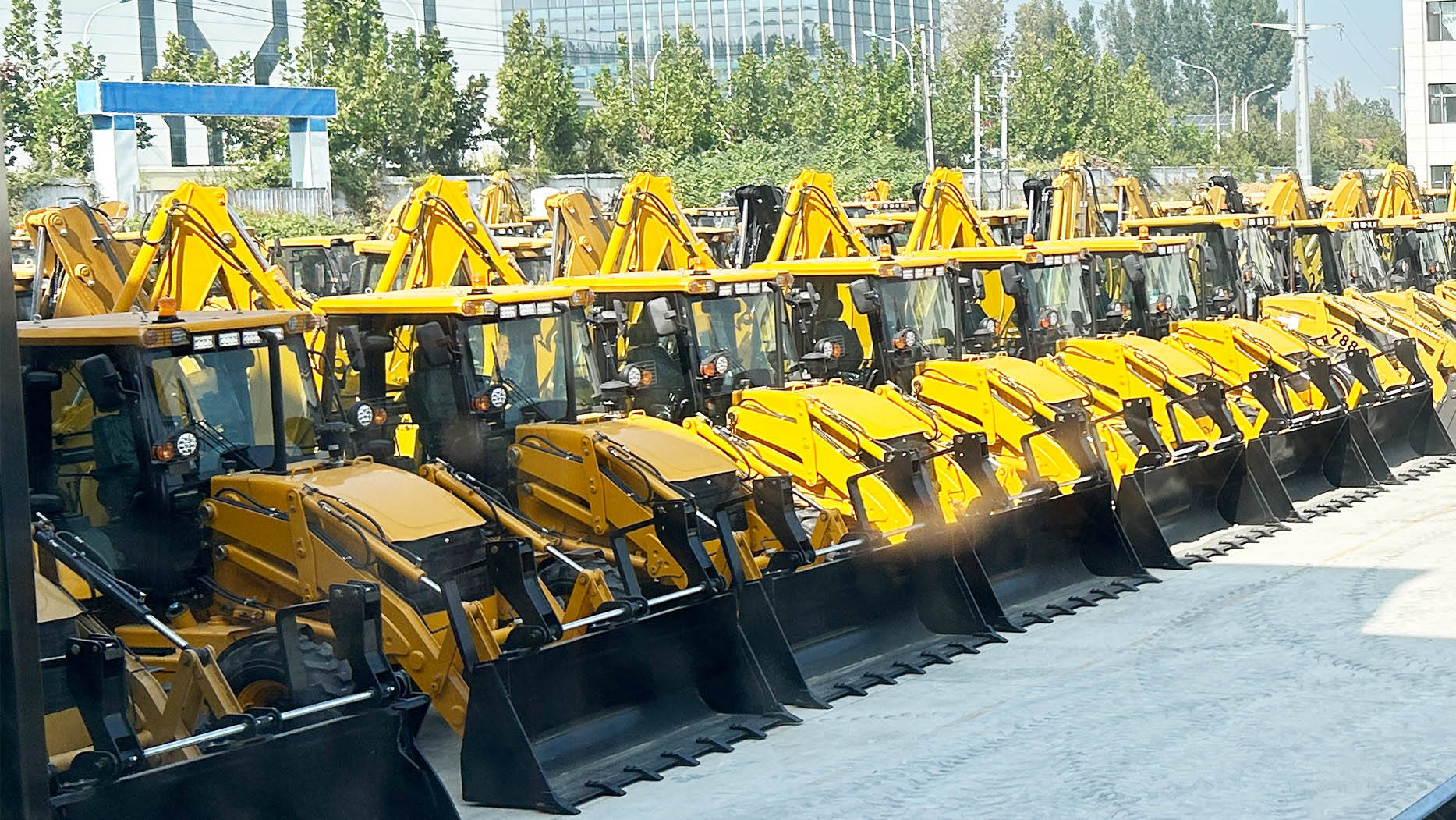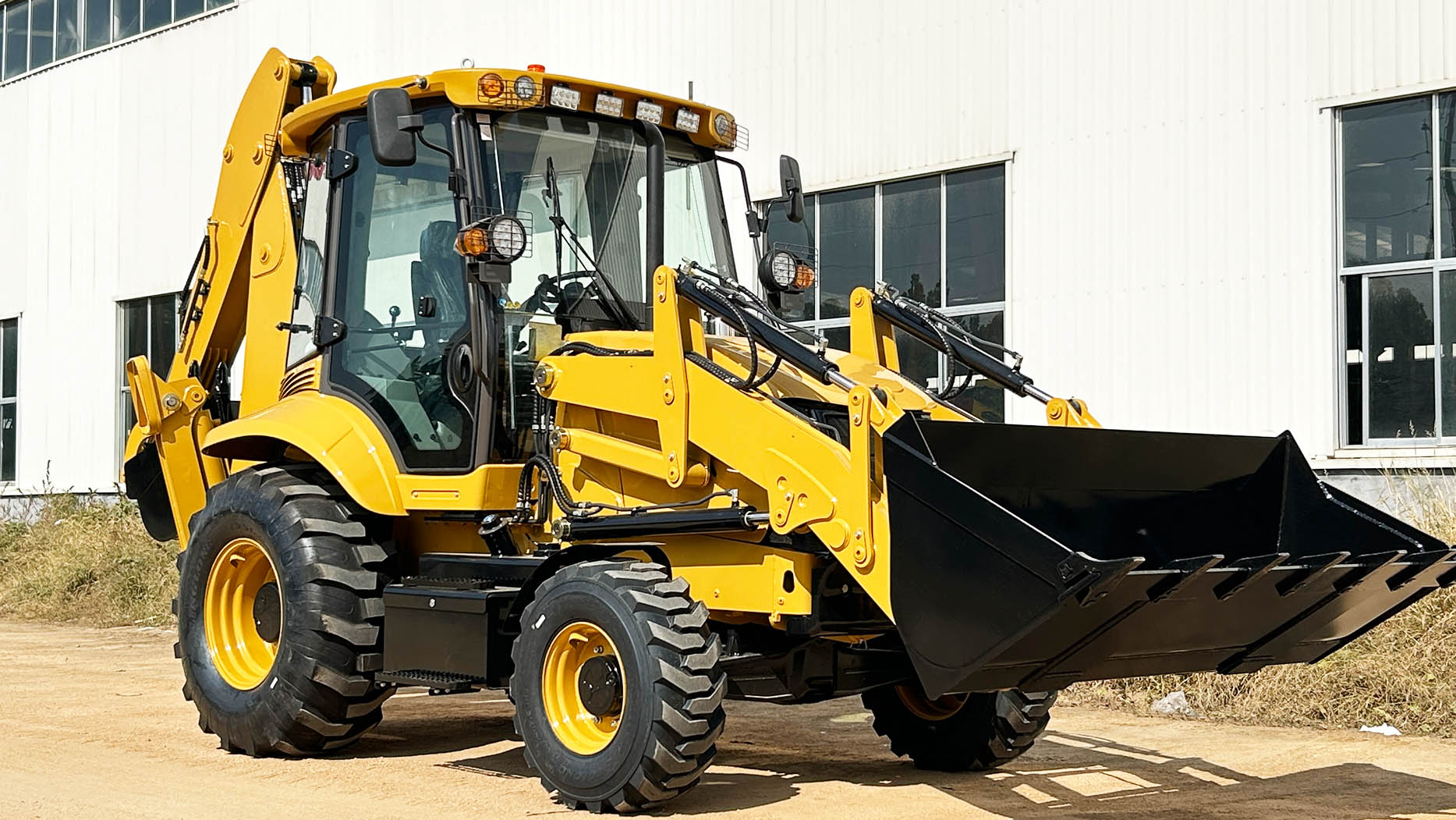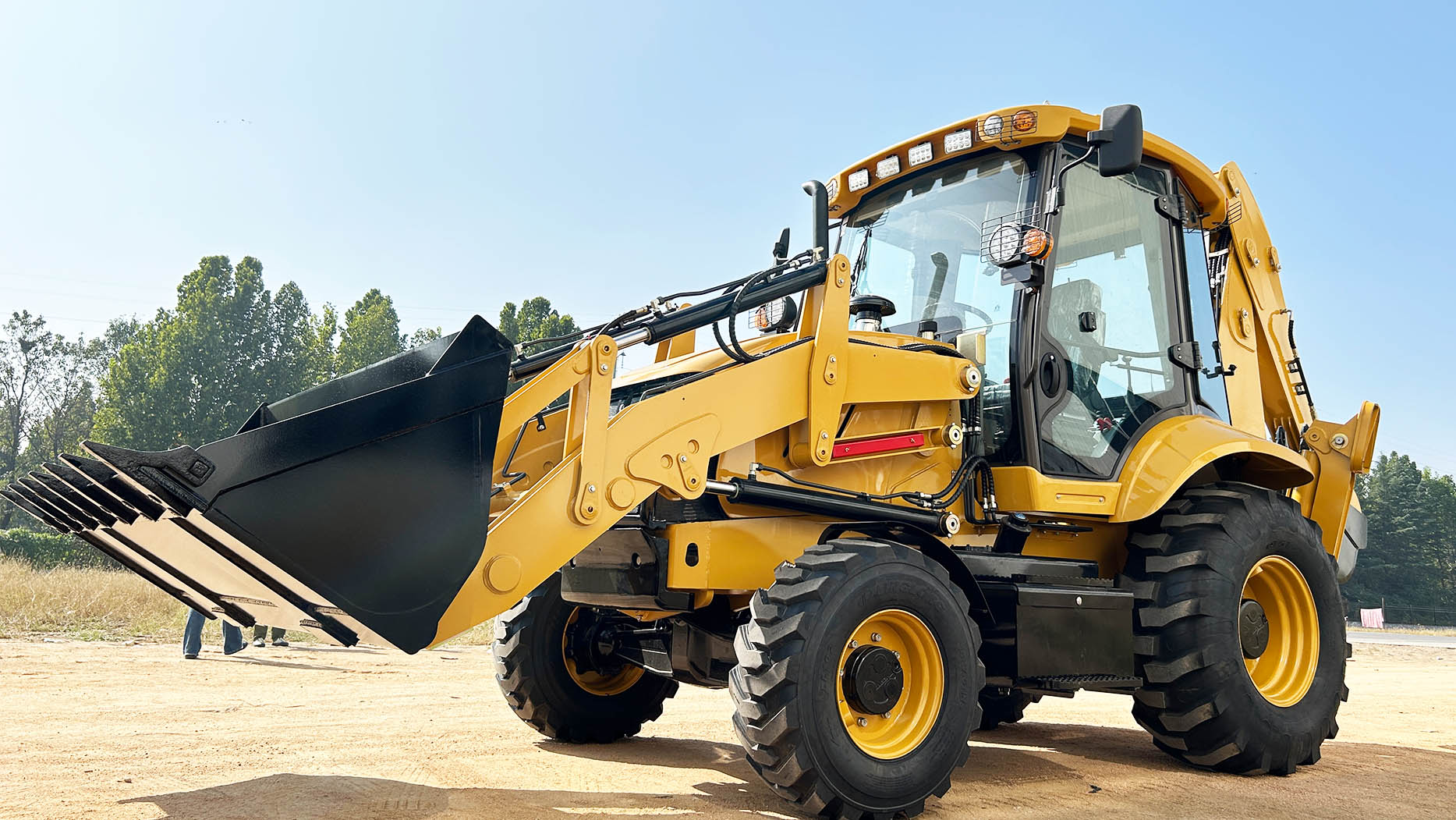In the vast and varied landscape of heavy equipment, brand names often become synonymous with specific types of machinery, sometimes leading to common misconceptions. One such question that occasionally arises is: "Is JCB a dozer?" The short, unequivocal answer is no. JCB is not a dozer. JCB (J.C. Bamford Excavators Ltd.) is a major global manufacturer of heavy equipment, and while they do produce a wide array of machines, including some that can perform dozing-like functions, a "dozer" refers to a very specific type of earthmoving machine, and JCB is primarily renowned for other key products.
This technical article will meticulously clarify the distinction between JCB as a brand and the specific machine known as a "dozer" (or bulldozer). We will explore the defining characteristics of a dozer, examine JCB's primary product lines (with a particular focus on their iconic backhoe loaders, akin to a MYZG BACKHOE), and explain why, despite sometimes sharing job sites or even performing overlapping tasks, these entities are fundamentally different.
Understanding the "Dozer": A Dedicated Earthmover
To understand why JCB is not a dozer, we must first define what a dozer (short for bulldozer) actually is. A dozer is a powerful track-type or, less commonly, wheel-type tractor equipped with a large metal plate, or blade, at its front. Its primary function is to push significant quantities of earth, sand, rubble, or other material, to engage in rough grading, and to clear land.
Key characteristics of a dozer include:
Dedicated Blade: The defining feature is the large, unarticulated or minimally articulated blade mounted rigidly to the front of the machine. This blade is designed for pushing, spreading, and cutting into the ground.
Track-Type Undercarriage (Predominant): Most dozers run on continuous tracks (like a tank), providing superior traction, stability, and flotation on soft, uneven, or steep terrain. This maximizes their pushing power and allows them to work in conditions where wheeled machines would struggle. While wheeled dozers exist, they are less common for heavy earthmoving.
Power for Pushing: Dozers are engineered with immense engine horsepower and robust powertrains specifically optimized for high drawbar pull (the force required to pull or push something). Their weight distribution is designed to maximize ground contact pressure under the blade for effective cutting and pushing.
Limited Versatility: While highly effective at their core task, dozers are not designed for lifting, loading into trucks, or precise digging of trenches. Their primary mode of operation is pushing material in front of them.
Steering: Tracked dozers steer by differentially applying power to their tracks (e.g., slowing one track down to turn), rather than using a steering wheel in the conventional sense.
Examples of Dozers: Iconic dozer manufacturers include Caterpillar (Cat D-series), Komatsu (D-series), and John Deere.
JCB: A Global Manufacturer, Not a Machine Type
JCB (J.C. Bamford Excavators Ltd.) is a British multinational corporation that manufactures a wide range of heavy equipment for construction, agriculture, waste handling, and demolition. Founded in 1945 by Joseph Cyril Bamford, JCB has grown into one of the world's largest equipment manufacturers, renowned for innovation and the distinctive yellow livery of its machines.

JCB: A Global Manufacturer, Not a Machine Type
JCB (J.C. Bamford Excavators Ltd.) is a British multinational corporation that manufactures a wide range of heavy equipment for construction, agriculture, waste handling, and demolition. Founded in 1945 by Joseph Cyril Bamford, JCB has grown into one of the world's largest equipment manufacturers, renowned for innovation and the distinctive yellow livery of its machines.
JCB's product portfolio is extensive and includes:
Backhoe Loaders: This is arguably JCB's most iconic and best-selling product. JCB invented the concept of the integrated backhoe loader in 1953. These versatile machines have a front-end loader bucket and a rear-mounted excavator arm (backhoe), providing dual functionality for digging, loading, and moving materials. They are distinct from dozers.
Excavators: Both tracked and wheeled excavators, ranging from mini-excavators to large heavy-duty models. These are primarily for digging, lifting, and swinging material.
Wheel Loaders: Dedicated front-end loaders with a large bucket for scooping and loading materials. While they can push material, their primary design is for loading, not sustained dozing.
Telescopic Handlers (Telehandlers): Multi-purpose machines with a telescopic boom for lifting and placing materials at height and reach.
Compact Track Loaders and Skid Steer Loaders: Smaller, highly maneuverable machines for various tasks, often with a range of attachments.
Dumpers: Machines specifically designed for transporting loose materials around a job site.
Agricultural Equipment: Tractors, telehandlers, and other machinery for farming.
Rough Terrain Forklifts: Specialized forklifts for challenging outdoor environments.
Why the Confusion? Overlapping Functions, Different Design
The confusion of "Is JCB a dozer?" likely stems from a few factors:
Brand Recognition: JCB is a household name in construction. For someone less familiar with specific machine types, "JCB" might become a generic term for any yellow construction machine.
Backhoe Loader's Front Blade: JCB backhoe loaders (like the MYZG BACKHOE equivalent) have a front loader bucket, and sometimes this bucket has a flat bottom or can be fitted with a dozer-like edge. While an operator can use the front loader of a backhoe to push or do some light grading (often called "dozing"), this is a secondary function. The machine's primary design is for digging with the backhoe and loading with the front bucket. A dedicated dozer is built solely for heavy pushing.
Wheel Loaders and Light Dozing: JCB also manufactures wheel loaders. These machines are primarily for scooping and loading but can perform some level of pushing or spreading material, which might superficially resemble dozing. However, they lack the ground pressure, blade adjustability, and sustained pushing power of a true dozer.
Limited Dozer Production: While JCB has historically produced some tracked machines, their market presence in dedicated bulldozers is minimal compared to giants like Caterpillar or Komatsu. JCB's strength lies in its diverse range, with the backhoe loader being its flagship.
 Differentiating a Backhoe Loader from a Dozer (with MYZG Backhoe Example)
Differentiating a Backhoe Loader from a Dozer (with MYZG Backhoe Example)
Let's use the comparison with a MYZG BACKHOE (representing a typical backhoe loader) to highlight the fundamental differences from a dozer:
A MYZG BACKHOE, with its front loader and rear digging arm, is designed for the versatility of handling multiple tasks on a smaller to medium-sized job site. It can dig a trench, then turn around and use its loader to backfill the trench or load spoil into a dump truck. It's a "swiss army knife" of construction.
A dozer, on the other hand, is a specialized "pushing" machine. Its entire design — the engine, transmission, tracks, and blade — is optimized for moving vast quantities of material. You wouldn't use a dozer to dig a precise trench for a utility line, nor would you use it to load a dump truck efficiently.
JCB's Specialization and Innovation
JCB's success stems from its commitment to innovation and understanding market needs. Their iconic backhoe loader is a testament to this. By combining the functions of a tractor, a loader, and an excavator into one highly mobile unit, JCB revolutionized small to medium-scale construction and agricultural work. This machine dramatically reduced the need for multiple pieces of equipment and simplified logistics on job sites worldwide.
While JCB recognizes the market for dozers, and some of their machines might feature blades that can perform dozing tasks, their core identity and dominant market share are firmly rooted in other equipment categories. Their strength lies in versatility and integrated functionality, rather than the singular, powerful pushing capability of a dedicated dozer.
 Conclusion: A Clear Distinction
Conclusion: A Clear Distinction
To definitively answer the question: JCB is not a dozer. JCB is a globally recognized manufacturer of heavy equipment, producing a broad spectrum of machinery for various industries. A dozer (bulldozer) is a very specific type of heavy equipment designed primarily for pushing and spreading large quantities of earth using a rigid front blade, almost exclusively featuring a track-type undercarriage.
While a JCB-manufactured backhoe loader (like a MYZG BACKHOE) or a wheel loader might perform light dozing tasks as a secondary function, their fundamental design, primary purpose, and operational characteristics are distinct from a dedicated bulldozer. Understanding this distinction is crucial for accurate communication in the heavy equipment industry, proper equipment selection for specific tasks, and appreciating the specialized engineering behind each machine type. JCB's legacy is built on the versatile, multi-tasking power of machines like the backhoe loader, not the singular, raw pushing force of a dozer.
Post time:May.23.2025
